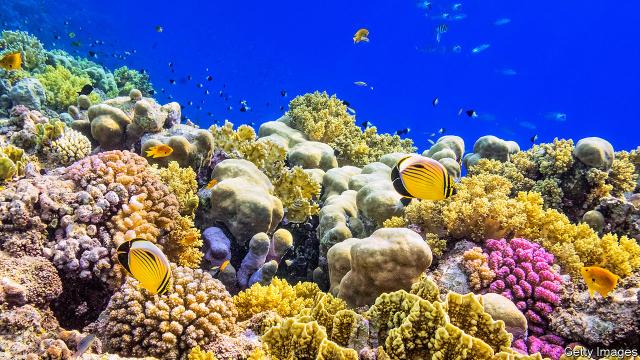The health of coral reefs is a matter of concern for a section of environmental activists and researchers. They forecast that by 2100, most of these coral reefs would disappear because of major factors like global warming of oceans, acidic water, and pollution. The scientists presented their findings Monday at an ocean sciences conference. In the opinion of scientists, the majority of all existing coral reefs could disappear in the next two decades. Renee Setter, one of the researchers of the University of Hawaii Manoa, said in a press release, "By 2100, it's looking quite grim.”
About 70-90% of all existing coral reefs are expected to disappear in the next 20 years due to warming oceans, acidic water and pollution, scientists say. https://t.co/tggebnmkLC
— CNN International (@cnni) February 20, 2020
CNN mentions about the methodology of the study.
A group of environmental activists and researchers carried out the study on coral reefs for restoration. They grew live corals in a lab and relocated them into marine environments. The intention was to attempt a revival of the dying reefs. They considered various aspects like the acidity of the water, its temperature, the density of the human population and fishing frequency. They feel areas where the coral reefs flourish today will not be able to support them by 2045. The situation could worsen by 2100. Their conclusion is - "By 2100, few to zero suitable coral habitats will remain." That summed up the seriousness of the issue related to the gradually vanishing coral reefs and the loss of biodiversity associated with them.
The fate of coral reefs is uncertain
The researchers have done an exhaustive study on coral reefs and have blamed Climate change. They admit human pollution is also responsible but say its long-term effect is less. Renee Setter explains that cleaning up the beaches help to combat pollution. The focus should be on fighting climate change, which is a major threat to the health of the corals. Setter adds that by 2100, there could be a few pockets left in the world for coral reefs. A couple of these are Baja California and the Red Sea. However, these cannot qualify as ideal reef habitats since they are in close proximity to rivers.
Climate change could wipe out almost all coral reef habitats around the world by 2100, according to research released Monday. https://t.co/9vsoLNzTgS
— NBC News World (@NBCNewsWorld) February 20, 2020
CNN mentions about regular warnings of scientists.
They quote the example of the Great Barrier Reef of Australia. It is 1,500 miles long and One of the natural wonders of the world. It has gone through a number of "bleaching" events over the past couple of decades. These are the fallout of a rise in the temperature of the waters. There have been marine heatwaves in 2016 and 2017 that destroyed a large percentage of the corals. That amounts to an ecological collapse since they provide a habitat for a whole range of marine life. Moreover, it will have a cascading effect on human lives.
Coral reefs vulnerable to greenhouse gas emissions
According to NBC News, a study conducted by the University of Hawaii at Mānoa found that by 2100, there would be hardly any habitats for corals.
Renee Setter, a biogeographer, explained that a combination of warming oceans and rising seas have a direct impact on the ecosystems. Greenhouse gas emissions add to the problems. These are created by humans and the carbon dioxide traps heat in the atmosphere. One result of this trapped heat is to increase the temperature of the surrounding regions. Another is to make the water more acidic, thereby threatening the survival of the corals.
Global warming is destroying the coral reefs
Coral reefs are an integral part of our ecosystem and support a wide range of marine life apart from local tourism. However, global warming is playing spoilsport and destroying these gifts of nature. Researchers have cautioned that for corals to flourish, it is necessary to arrest the threat. Greenhouse gas emissions mean irreparable damage to the environment. These gases are results of burning fossil fuels and can be prevented by pursuing renewable energy.
![Great Barrier Reef in danger of another mass bleaching of its coral reefs. [Image source/ABC News (Australia) YouTube video] Great Barrier Reef in danger of another mass bleaching of its coral reefs. [Image source/ABC News (Australia) YouTube video]](https://staticr1.blastingcdncf.com/media/photogallery/2020/2/21/660x290/b_502x220x82/great-barrier-reef-in-danger-of-another-mass-bleaching-of-its-coral-reefs-image-sourceabc-news-australia-youtube-video_2404921.jpg)


